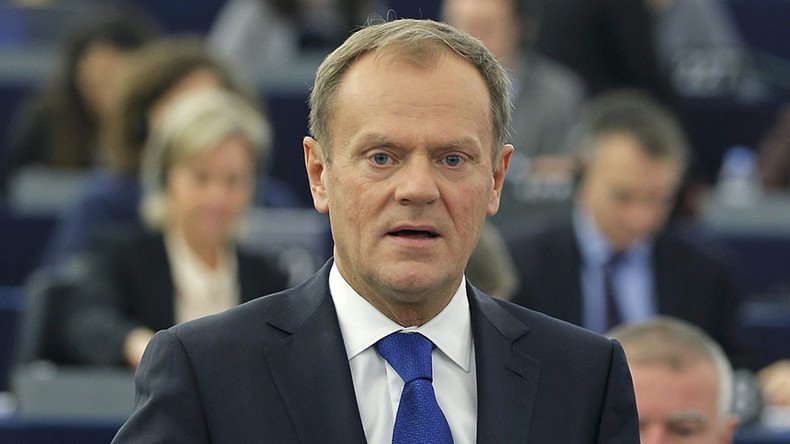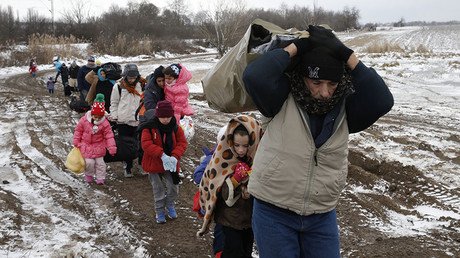Schengen at risk: EU has 'no more than 2 months' to get refugee crisis under control, Tusk warns

The president of the European Council has warned that Europe has “no more than two months” to get the refugee crisis under control, or else its borderless Schengen zone will collapse.
"We have no more than two months to get things under control," Donald Tusk told the European Parliament on Tuesday, adding that the Schengen area would otherwise fail. The 26-nation Schengen zone allows people to travel freely between participating countries, without passport or ID checks.
Tusk also said the EU would "fail as a political project" if the bloc could not exercise proper control of its external borders.
It comes just days after Austria's chancellor, Werner Faymann, announced that the country had “temporarily cancelled” its adherence to the Schengen agreement.
“If the EU does not manage to secure the external borders, Schengen as a whole is put into question...then each country must control its national borders,” Faymann told Oesterreich newpaper, adding that if the bloc’s external borders are not secured in the near future, “the whole EU [will be] in question.”
Serbia is against the cessation of the free-movement Schengen Agreement, Serbian FM Ivica Dacic said on Tuesday. The sealing of the free-movement Schengen zone will have a domino-effect on all of the Balkans he said, adding that Serbia’s stance towards refugees has been more by-the-book than that of any other EU state, RIA Novosti reported.
Austria has radically changed its policy towards refugees, implementing a strict monitoring system for asylum seekers. A valid identity card will now have to be provided to authorities, and those who do not have the right to asylum or have already been rejected by Germany will be denied entry. The army has been deployed at the borders to stop refugees who intend to simply transit through the country and not apply for asylum there. Those found to be economic migrants, rather than refugees fleeing war and persecution, will be sent back to their countries of origin.
In addition to Austria, 10 other countries – Greece, Bulgaria, Macedonia, Hungary, Slovenia, Sweden, Denmark, Italy, Finland, and Germany – have implemented some form of border control amid the refugee crisis.
Faymann's comments came just two days after European Commission President Jean-Claude Juncker accused the EU of “failing to deliver” on efforts to resolve the refugee crisis.
Despite a European Union plan to relocate 160,000 refugees from the frontline countries of Italy and Greece, AFP reported earlier this month that just 272 people had actually been moved. The decision to relocate asylum seekers was approved in October, despite opposition from several Eastern European states.
Refusing to give up on the relocation scheme, Juncker warned last week that the EU is “moving toward a serious crisis in terms of credibility,” and urged member states to fulfill their legal and political responsibilities.
Europe is continuing to face the worst refugee crisis since World War II, with the amount of asylum seekers from the Middle East and North Africa expected to increase this year.
According to the United Nations refugee agency (UNHCR), the number of refugees entering Europe in the first 10 days of 2016 was already three times higher than the level in all of January 2015. Forty-nine people have died or gone missing after attempting to cross into Europe this month.
More than one million refugees arrived in the European Union last year. Most of the asylum seekers hail from Syria, where a civil war has claimed the lives of 250,000 people and displaced 12 million others since 2011, according to UN figures.













